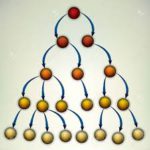Hi again. My work was recently criticized (politely) by a respected philosopher — Owen Flanagan — who specializes in the study of addiction. Here is a very nice article of his, on the topic of addiction and shame. His point was that the word “addiction” is an umbrella term used to refer to many distinct and diverse phenomena, and it is therefore unhelpful and should be replaced. If he’s right, then obviously I’m not the only perpetrator. Most of us in this field use the term “addiction” to describe what we see as a holistic phenomenon. But that doesn’t mean he’s wrong.
I’ve had to take a break from blogging because I’ve been so busy writing pieces for a journal called Neuroethics. I sent them a fairly dense article about a year ago, basically a summary of my book. I vowed to myself that this would be my final piece of academic writing. I much prefer writing “pop science” these days. Surprised? Anyway, I was told that my piece would be followed by several  commentaries, and half a year later the total came to 15 — shock! — many from well-known researchers and journalists, including Kent Berridge, George Ainslie, Maia Szalavitz, and Sally Satel. The punchline for me was that I had to write replies to each of these commentaries, to be printed along with them in the journal. And let me tell you, these were sculpted pieces of academic writing — some of them many pages in length — so I’ve had to sweat blood to reply to them. And I’ve still got more than half left to do.
commentaries, and half a year later the total came to 15 — shock! — many from well-known researchers and journalists, including Kent Berridge, George Ainslie, Maia Szalavitz, and Sally Satel. The punchline for me was that I had to write replies to each of these commentaries, to be printed along with them in the journal. And let me tell you, these were sculpted pieces of academic writing — some of them many pages in length — so I’ve had to sweat blood to reply to them. And I’ve still got more than half left to do.
Enough whining?
So let me share with you a few paragraphs from my reply to Flanagan — edited as a brief stand-alone: my answer to the claim that “addiction” is too general a term, given all the distinctions it tries to cover.
According to Flanagan, we should recognize that different attractions to different substances or behaviors really are distinct, and that the umbrella term “addiction” does the field a disservice by  lumping them all together. So, he said, it’s a good thing that the DSM has dropped “addiction” (almost) from its vocabulary. Just like the phrase “nervous breakdowns” has disappeared from the popular lexicon: it’s about time we got rid of the outmoded term “addiction.” The culprit, for him, is imprecision. Addiction is an imprecise term, and worse, it brings with it “many problematic accretions and connotations” — no doubt he means accusations of blame, self-indulgence, moral decay, and the resultant stigmatization of addicts.
lumping them all together. So, he said, it’s a good thing that the DSM has dropped “addiction” (almost) from its vocabulary. Just like the phrase “nervous breakdowns” has disappeared from the popular lexicon: it’s about time we got rid of the outmoded term “addiction.” The culprit, for him, is imprecision. Addiction is an imprecise term, and worse, it brings with it “many problematic accretions and connotations” — no doubt he means accusations of blame, self-indulgence, moral decay, and the resultant stigmatization of addicts.
 So Flanagan replaces the word “phenomenon” with “phenomena.” But what are these distinct entities? To me this is like trying to describe and differentiate the various species included under the label “birds” — so that we can do away with the term “bird” altogether. Is that a good idea?
So Flanagan replaces the word “phenomenon” with “phenomena.” But what are these distinct entities? To me this is like trying to describe and differentiate the various species included under the label “birds” — so that we can do away with the term “bird” altogether. Is that a good idea?
It may seem surprising but Flanagan and I agree on the value of finer distinctions in talking about the phenomena comprising what we’re in the habit of calling “addiction.” The variations in personality factors, the diversity of negative feelings that fuel addictive tendencies, and the nature of the substances or behaviours themselves…altogether provide a cornucopia of distinctions that I think we should discuss and analyze in far greater detail. Here’s just one example:
I have long believed that the kinds of feelings and personality patterns that attract some people to psychostimulants are fundamentally different from those that attract others to opiates. I think that  people who get addicted to meth have tended to feel an absence of power, or commitment, or
people who get addicted to meth have tended to feel an absence of power, or commitment, or  relevance in their lives. They are most bothered by the flatness of their existence. Whereas people attracted to opiates (like me) are fundamentally afraid of losing warmth, acceptance, and connection with other people. We grow up feeling unsafe because we are hyper-aware of our aloneness, and the soothing quality of opiates eases the hurt.
relevance in their lives. They are most bothered by the flatness of their existence. Whereas people attracted to opiates (like me) are fundamentally afraid of losing warmth, acceptance, and connection with other people. We grow up feeling unsafe because we are hyper-aware of our aloneness, and the soothing quality of opiates eases the hurt.
So, lots of differences — important differences! But in my mind, that doesn’t erase the commonalities — the features that different addictions have in common. Such as the growing magnitude of our attraction to one reward at the expense of all others, the impulsive and then compulsive nature of that attraction, and the way that “now appeal” — a cognitive distortion that overvalues immediate rewards — funnels that attraction into a self-reinforcing cycle of thought and behaviour. In other words, all the stuff I wrote about in my recent book.
I believe that neuroscience can move us forward in specifying and understanding what different addictions have in common. But it can also help us understand the distinctions. Depression looks different from anger on a brain scan, impulse looks different from compulsion, and so forth. Our next step should be to discover the brain pathways that tie these mental states to specific addictive patterns.
 As for the term “addiction,” I don’t think replacing it with “substance use disorder” is going to get rid of the “many problematic accretions and connotations” Flanagan worries about. That kind of modernization of terminology doesn’t seem to help alienated or marginalized groups. For example, replacing “retarded” with “delayed” never erased the stigmatization of people who can’t think as quickly as others. So in this case, let’s not throw out the baby or the bathwater. Let’s continue to explore how all addictions embody fundamental changes in how we think, feel and act. But let’s also try to clarify how those changes take different forms, leading to different outcomes, for different people.
As for the term “addiction,” I don’t think replacing it with “substance use disorder” is going to get rid of the “many problematic accretions and connotations” Flanagan worries about. That kind of modernization of terminology doesn’t seem to help alienated or marginalized groups. For example, replacing “retarded” with “delayed” never erased the stigmatization of people who can’t think as quickly as others. So in this case, let’s not throw out the baby or the bathwater. Let’s continue to explore how all addictions embody fundamental changes in how we think, feel and act. But let’s also try to clarify how those changes take different forms, leading to different outcomes, for different people.

Leave a Reply to carl Cancel reply